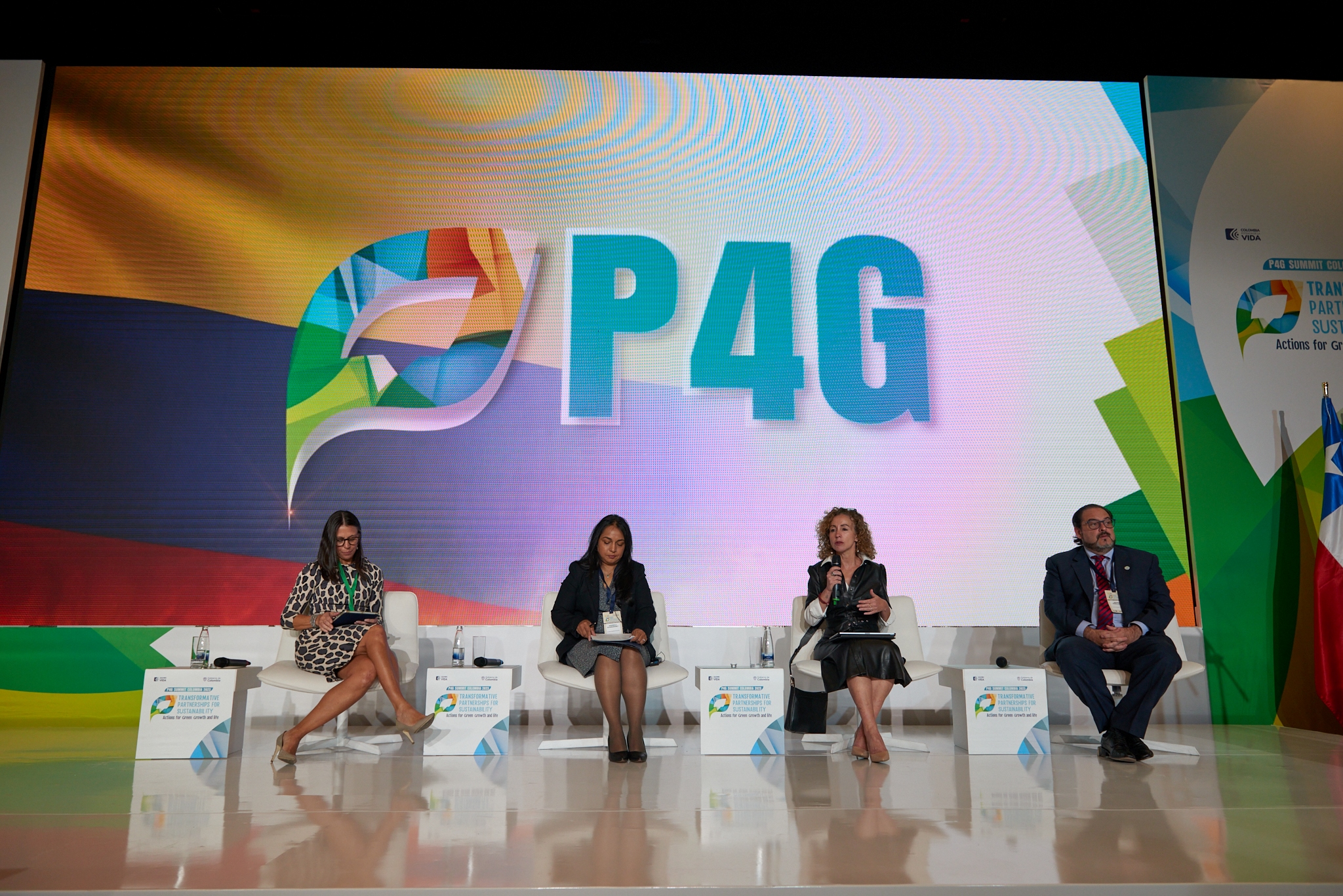P4G Summit Emphasizes People-Centered Just Transition

About
"There is going to be no transition without people.”
With this statement, Shameela Soobramoney, CEO of the National Business Initiative in South Africa set the stage for a conversation focused on people and the environment.
The high-level panel on “Partnerships for a Just Transition” at the 2023 P4G Colombia Summit saw speakers from business and multilateral institutions share solutions for people-centric transitions while also urging the audience to consider unexpected consequences.
Soobramoney shared the country’s challenges with making sure its transition from coal provides opportunities for social inclusion and gender equity. With 60% unemployment in South Africa contributing to social unrest, the country cannot think about transition without focusing on jobs. That’s why as South Africa prepared its updated nationally determined contributions for COP26, a coalition of businesses participated in a fact-based study that charted a pathway that makes the transition not only possible, but also jobs-positive if done in the right way. By participating in this process, businesses demonstrated that they were on board, paving the way for government policies that could facilitate the transition.
Andres Rebolledo, Executive Secretary for the Latin America Energy Organization (OLADE), highlighted his organization’s work with countries across the region pursuing an energy transition. Currently, Latin America generates 30% of its energy with renewables, compared to 17% worldwide. With countries at different stages of the transition and with diverse energy resources, Latin America needs to look at alternative sources, such as green hydrogen to not just decarbonize the energy sector, but the whole economy.
Bringing in the perspective of a multilateral development bank, Marianna Alfonso, Lead Specialist for Climate Change and Sustainable Development Department at the Inter-American Development Bank (IDB) shared IDB’s framework for a just transition that benefits people. Its approach focuses on five areas: employment and skills development, impact on spaces, communities, fiscal policies and the political economy overall. She noted that technological solutions exist, but partnerships and coordinated work are essential to make sure they’re implemented effectively.
Alfonso also emphasized that we need to be realistic about how decarbonization can affect government revenues that pay for social services. For example, we need to anticipate changes in energy prices and how these prices will affect low-income households to make sure it doesn’t disproportionately burden their basic necessities. “These are not small challenges,” she said.
The session was moderated by Adriana Lobo, Managing Director, Global Presence and National Action at World Resources Institute who framed the challenge we have as humanity to support a sustainable transition. Speakers highlighted the value of P4G’s approach, noting that it enables the transition with action that is already happening – it just needs to rapidly scale.
They also discussed the opportunity to learn from others at the Summit and use them to leapfrog solutions in their own country. For example, Soobramoney highlighted how Bogota’s efforts to help women earn good quality jobs by leading the electric bus transition could be a useful model in South Africa. Meanwhile, Alfonso shared IDB’s work with the government of Ecuador developing hybrid trainings for workers to build green skills, starting in the water and agriculture sectors, so they can refine and replicate these kinds of skill development courses across sectors and regions.
More than anything, speakers emphasized that the just transition requires urgent, rapid action.
As Soobramoney put it, “The climate is not going to wait for you to have the right conversation.”
